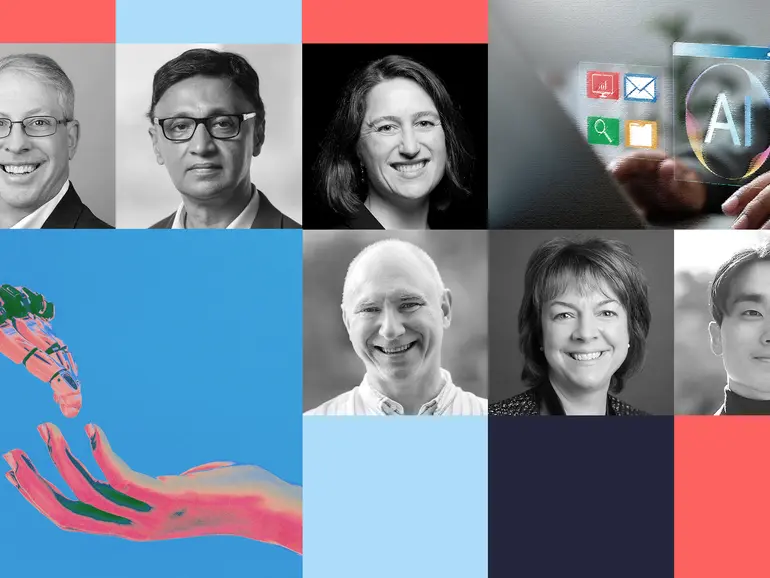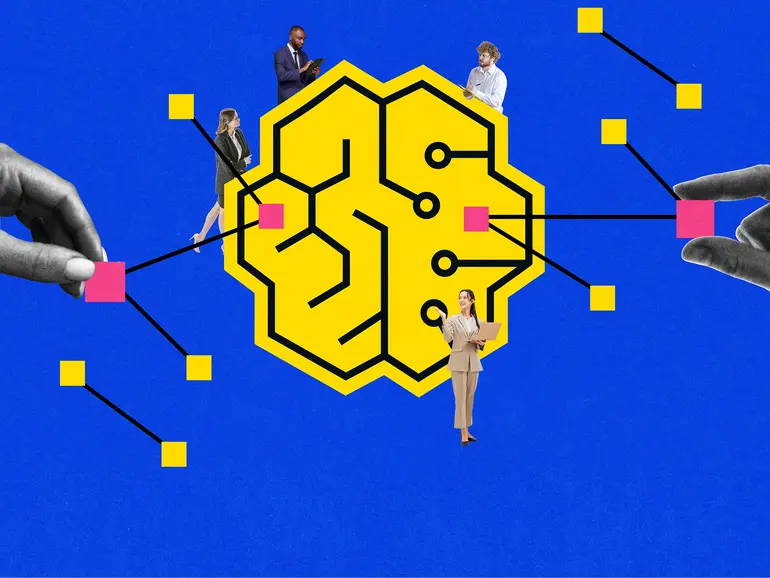Looking ahead at AI and work in 2026
Experts in artificial intelligence from MIT Sloan are keeping an eye on the human-LLM accuracy gap, AI guardrails, and other trends.

Faculty
George Westerman is a Senior Lecturer at the MIT Sloan School of Management and Founder of the Global Opportunity Forum.
George’s work bridges the fields of executive leadership and technology strategy. During more than 20 years with MIT Sloan School of Management, he has written three award-winning books, including Leading Digital: Turning Technology Into Business Transformation. As a pioneering researcher on digital transformation, George has published papers in Harvard Business Review, Sloan Management Review, and other top journals. He is now focused on helping employers, educators, and other groups to rethink the process of workforce learning around the world through the GOI and several research collaborations.
George is cochair of the MIT Sloan CIO Leadership Awards, a member of the Digital Strategy Roundtable for the US Library of Congress, and learning strategy advisor to the World Health Organization Academy. He works frequently with senior management teams and industry groups around the world. Prior to earning a Doctorate from Harvard Business School, he gained more than 13 years of experience in product development and technology leadership roles.

Experts in artificial intelligence from MIT Sloan are keeping an eye on the human-LLM accuracy gap, AI guardrails, and other trends.

AI really can pay off. But leaders must take a systematic approach, understand how the technology works, and let their team leaders determine how it’s used.
Those at the top of the organization, senior lecturer George Westerman said, are concerned about the costs associated with AI. At the bottom, people are just wondering if they'll lose their job and how they'll adapt. He described it as decision-making inertia at the top of the organization versus adoption inertia farther down. The challenge is moving both along and bridging the gap. "Helping to create the case for change and helping people feel that they can be part of that change. That's becoming even more critical this time around," he said.
Social media platforms are saturated with career content but more advice hasn't made career decisions easier; it's made them more overwhelming. According to an article by principal research scientist George Westerman and Abbie Lundberg, editor in chief of MIT Sloan Management Review, 67% of individual contributors surveyed said they want to advance their career, but 49% said a lack of good career advice has hurt their job trajectory.
"Models need so much more data and in multiple formats," said principal research scientist George Westerman. "Where it used to be making sense of structured data, which was relatively straightforward, now it's: 'What do we do with all this unstructured data? How do we tag it? How do we organize it? How do we store it?' That's a bigger challenge."
Without a retail website as an "intermediary," shoppers can find their desired products more efficiently, since an AI algorithm finds results from across the internet and compiles them in one location, said principal research scientist George Westerman. He questioned the reliability and trustworthiness of the results and who might benefit from them. "Who's influencing the recommendations it gives you?" he said. "It's unclear how neutral AI results are because they've got to make money somehow."
A month-long senior executive program designed for a diverse group of experienced leaders seeking transformative learning among global peers. AMP participants will engage in custom learning components led by MIT’s world-renowned faculty, including interactive classroom sessions, management simulations, case studies, 1:1 leadership coaching, and individualized feedback assessments. Participants will also explore the many companies, labs and centers that make MIT and surrounding Kendall Square the epicenter of innovation worldwide.